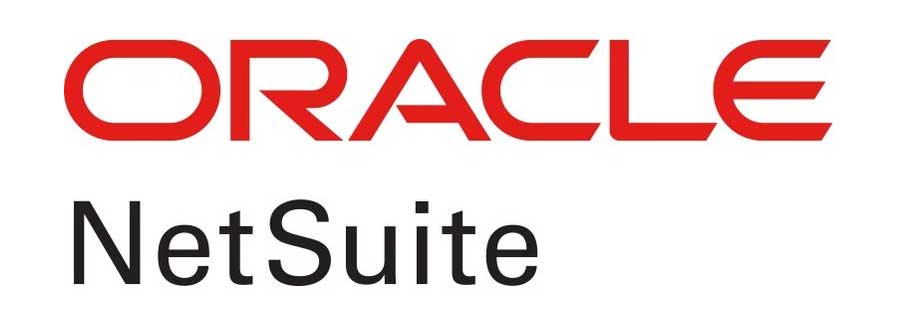Top Auto Dealer Accounting Software for Business
List of 30 Best Auto Dealer Accounting Software


What is Auto Dealer Accounting Software?
Auto dealer accounting software refers to specialized software designed to meet the accounting and financial management needs of automotive dealerships. It provides a comprehensive set of tools and features specifically tailored to the unique requirements of the automotive industry.
The primary purpose of auto dealer accounting software is to streamline and automate financial processes within a dealership, including inventory management, sales tracking, payroll, expenses, invoicing, and financial reporting. It helps dealerships efficiently manage their finances, track revenue and expenses, and maintain accurate records of their business transactions.
What are the Benefits of Auto Dealer Accounting Software?
Implementing auto dealer accounting software can provide several benefits to automotive dealerships. Here are some key advantages:
Streamlined Financial Processes: Auto dealer accounting software automates various financial tasks, such as invoicing, inventory management, payroll, and reporting. It eliminates manual data entry, reduces paperwork, and streamlines financial processes, leading to increased efficiency and time savings.
Accurate Financial Records: With automated data capture and calculations, the software helps ensure accuracy in financial records. It minimizes errors, eliminates double entries, and reduces the risk of miscalculations, enhancing the reliability of financial data and reports.
Improved Inventory Management: Auto dealer accounting software integrates with inventory management systems, allowing dealerships to efficiently track vehicle inventory, including purchases, sales, and associated costs. This ensures better control over stock levels, reduces the risk of overstocking or understocking, and optimizes inventory turnover.
Enhanced Sales Tracking and Analysis: The software enables dealerships to track and analyze sales data, including revenue, profit margins, and customer information. This information helps identify sales trends, evaluate the performance of different vehicle models, and make data-driven decisions to optimize sales strategies.
Financial Visibility and Reporting: Auto dealer accounting software provides comprehensive financial reporting capabilities. Dealerships can generate various reports, such as profit and loss statements, balance sheets, cash flow statements, and sales reports, to gain insights into their financial performance and make informed business decisions.
Efficient Payroll Management: The software simplifies payroll processes by automating calculations, tax deductions, and generating pay slips for employees. It helps ensure accurate and timely payroll processing, minimizing errors and saving time for the dealership's HR and accounting teams.
Regulatory Compliance: Auto dealer accounting software assists dealerships in complying with financial regulations and tax obligations. It helps calculate taxes, generate tax reports, and maintain proper documentation, ensuring compliance with legal requirements.
Integration with Dealer Management Systems (DMS): Integration with DMS allows seamless data flow between different departments, such as sales, service, and finance. This promotes better collaboration, eliminates data silos, and improves overall operational efficiency.
Cost Savings: By automating financial processes, reducing manual errors, and improving efficiency, auto dealer accounting software can lead to cost savings. It minimizes the need for paper-based record-keeping, reduces administrative overhead, and helps optimize financial resources.
Scalability and Growth: As automotive dealerships expand, the software can scale to accommodate increasing transaction volumes, additional branches, and more complex financial operations. It provides a foundation for growth and supports the dealership's evolving financial management needs.
Auto dealer accounting software empowers dealerships to streamline financial operations, gain better control over their finances, and make informed decisions based on accurate and timely information. It contributes to increased efficiency, improved profitability, and enhanced customer service within the automotive industry.
What are the Features offered by Auto Dealer Accounting Software?
Auto dealer accounting software offers a range of features to support the specific accounting and financial management needs of automotive dealerships. Here are some key features commonly found in auto dealer accounting software:
Inventory Management: Track and manage vehicle inventory, including details such as stock numbers, purchase costs, sales prices, vehicle history, and aging.
Sales and Purchase Management: Record and track sales transactions, generate sales invoices, manage customer information, handle trade-ins, and process purchase orders from suppliers.
Finance and Loans: Manage financing options for vehicle sales, calculate loan payments, track loan accounts, handle finance contracts, and generate finance-related reports.
General Ledger: Maintain a centralized ledger for all financial transactions, including revenue, expenses, journal entries, and account reconciliations.
Accounts Receivable and Payable: Track customer payments, manage outstanding invoices, process vendor invoices, and handle payments to suppliers. Generate aging reports to monitor receivables and payables.
Financial Reporting: Generate various financial reports such as profit and loss statements, balance sheets, cash flow statements, trial balances, sales reports, and expense reports. Customizable reporting options provide flexibility to extract specific insights.
Payroll Management: Process payroll, calculate wages and salaries, handle tax deductions, manage employee records, and generate pay slips. Some software may integrate with payroll systems or offer built-in payroll functionality.
Tax Management: Calculate and track taxes applicable to vehicle sales, manage tax rates, generate tax reports, and ensure compliance with tax regulations.
Bank Reconciliation: Automate bank statement imports and reconcile bank transactions with accounting records to ensure accuracy and identify discrepancies.
Document Management: Attach and store important documents related to financial transactions, such as invoices, receipts, contracts, and vehicle records. Centralized document storage facilitates easy retrieval and audit trail creation.
Integration with Dealer Management Systems (DMS): Seamless integration with DMS allows for data synchronization across departments, such as sales, service, and finance, ensuring consistent and up-to-date information.
Multi-Location Support: Accommodate multiple dealership locations within a single software instance, providing centralized control and consolidated reporting.
User Roles and Permissions: Assign different user roles and permissions to control access to sensitive financial information and ensure data security.
Mobile Access: Some software may offer mobile apps or web-based access, allowing users to access key financial information and perform tasks remotely.
Auditing and Compliance: Maintain audit trails, enforce internal controls, and support compliance with regulatory requirements.
These features help automotive dealerships streamline accounting processes, improve financial visibility, and ensure accurate record-keeping. The software simplifies complex financial tasks specific to the automotive industry, empowering dealerships to make informed decisions and optimize their financial operations.
Auto Dealer Accounting Software Integrates
Auto dealer accounting software often integrates with various other software solutions to enhance functionality and streamline operations. Here are some common software systems that auto dealer accounting software can integrate with:
Dealer Management Systems (DMS): Integration with DMS is crucial for seamless data synchronization across departments. It ensures that information on sales, inventory, customer data, and service records is shared between the accounting software and the DMS.
Customer Relationship Management (CRM) Systems: Integration with CRM systems enables better management of customer data, sales leads, and follow-ups. It ensures that customer information is shared between the accounting software and the CRM, providing a holistic view of customer interactions.
Inventory Management Systems: Integration with inventory management systems allows real-time synchronization of vehicle inventory data. It ensures that the accounting software has up-to-date information on stock levels, purchase costs, and sales prices.
Point of Sale (POS) Systems: Integration with POS systems enables seamless transfer of sales transaction data from the POS system to the accounting software. It streamlines the recording of sales, updating inventory levels, and generating sales invoices.
Payroll Systems: Integration with payroll systems facilitates the seamless transfer of payroll data, employee records, and wage information from the accounting software to the payroll system. It ensures accurate payroll calculations and simplifies the payroll management process.
Tax Software: Integration with tax software simplifies tax calculations, enables automatic updates of tax rates and regulations, and facilitates the generation of tax reports. It streamlines tax compliance and minimizes manual data entry for tax-related processes.
Electronic Document Management Systems (DMS): Integration with DMS solutions allows for the storage and retrieval of important documents related to financial transactions, such as invoices, receipts, and contracts. It ensures that relevant documents are easily accessible from within the accounting software.
Financial Reporting and Business Intelligence Tools: Integration with reporting and analytics tools enhances the capabilities of the accounting software. It enables advanced financial reporting, data visualization, and deep analysis of financial performance.
Banking and Payment Gateways: Integration with banking systems and payment gateways facilitates electronic fund transfers, online payment processing, and bank statement reconciliation. It streamlines financial transactions and ensures accurate recording of payments.
The availability of integrations may vary depending on the specific auto dealer accounting software. It's essential to check with the software provider for a comprehensive list of integrations and to ensure compatibility with the existing software ecosystem within the dealership.



.png)